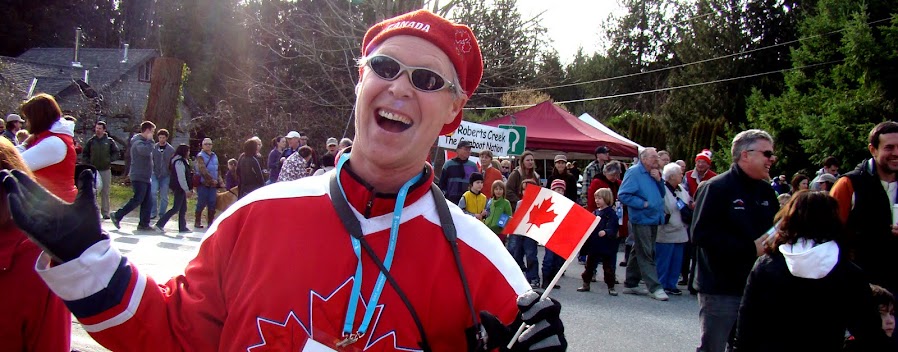
Your Health and Air Quality?
Notice how hazy it is over the Sunshine Coast right now? With Air Quality Advisories for forest fires on the East Coast of Vancouver Island plus the Sea to Sky Corridor, it's important to ensure our seniors, youth, pets & family are protected.
Air Quality
http://www.env.gov.bc.ca/epd/bcairquality/index.html
Forest Fire Danger
http://bcwildfire.ca/weather/maps/danger_rating.htm
The Howe Sound Corridor and the Strait of Georgia act like funnels and cauldrons to swirl our air and winds around. There are no borders here. This underlies why a clean healthy planet is so important to all of us and the future.
Helpful Health Tips:
Avoid strenuous outdoor activities. If you are experiencing any of the following symptoms, contact your health care provider: difficulty in breathing, chest pain or discomfort, and sudden onset of cough or irritation of airways.
READ
Tribute to Emergency Services for BC Day.
Exposure is particularly a concern for infants, the elderly and those who have underlying medical conditions such as diabetes, and lung or heart disease. People with heart or lung conditions should reduce their levels of activity while air quality is poor. These individuals should watch for worsening of their symptoms.
If this happens, they should reduce their exposure to the smoke and contact their health care provider, walk-in clinic or emergency department for advice.
To speak to someone immediately about your health concerns, contact HealthLink BC, available toll free, 24 hours a day, 7 days a week at 8-1-1, or via the web at: http://www.healthlinkbc.ca/kbaltindex.asp Forecast weather conditions over the next few days are expected to reduce smoke concentrations to safer levels.

Don Power posted this satellite image of the smoke over our area.
Tips to reduce your personal health risk:
• People with heart or lung conditions may be more sensitive to the effects of smoke and should watch for any change in symptoms that may be due to smoke exposure. If any symptoms are noted, affected individuals should take steps to reduce their exposure to smoke and if necessary see their physician. People with symptoms should go to their health care provider, walk in clinic or emergency department depending on severity of symptoms.
• Use common sense regarding outdoor physical activity – if your breathing becomes difficult or uncomfortable, stop or reduce the activity.
• Stay cool and drink plenty of fluids.
• Smoke levels may be lower indoors, however levels of smoke particles will still be increased. If you stay indoors, be aware of your symptoms.
• Consider visiting a location like a shopping mall with cooler filtered air. Keep in mind that staying indoors may help you stay cool and provide some relief from the smoke, however many air conditioning systems do not filter the air or improve indoor air quality.
• Reduce indoor pollution sources such as smoking or burning other materials.
• You may be able to reduce your exposure to smoke by moving to cleaner air. Conditions can vary dramatically by area and elevation.
• Residents with asthma or other chronic illness should activate their asthma or personal care plan.
• Pay attention to local air quality reports, air quality may be poor even though smoke may not be visible.
• Commercially available HEPA (high efficiency particulate air) filters can further reduce poor indoor air quality near the device.
• Maintaining good overall health is a good way to prevent health effects resulting from short-term exposure to air pollution.
• For general information about smoke and your health, contact HealthLink BC available toll free, 24 hours a day, 7 days a week at 8-1-1, or via the web at:
http://www.healthlinkbc.ca/kbaltindex.asp.
• Real-time air quality information in B.C. is available at http://www.bcairquality.ca.
Food safety and water quality tips:
• During a forest fire, it's also important to be aware of health risks associated with food
safety in power outages and water quality.
• Interior Health's website contains helpful information and other resources related to forest
fire smoke exposure / air quality, as well as food safety when the power is out and ensuring
your drinking water is safe.
• Visit http://www.interiorhealth.ca, click on the Health & Safety tab at the top of the page, then follow the links for Emergency Information > Forest Fires.
Many thanks to the Government of British Columbia for having this information ready to share. Duane
LINKS
http://www.env.gov.bc.ca/epd/bcairquality/index.html
http://www.healthlinkbc.ca/kbaltindex.asp
http://www.interiorhealth.ca
http://www.bcairquality.ca
http://bcwildfire.ca/weather/maps/danger_rating.htm
It's Always A Good Day on the Sunshine Coast!
http://duaneburnett.com
http://duaneburnett.blogspot.com
http://twitter.com/duaneburnett
Duane's Facebook Profile
http://www.facebook.com/profile.php?id=570266071
Duane's Facebook Fan Page
http://www.facebook.com/pages/Duane-Burnett/132243609016?ref=ts
Sunshine Coast BC Canada facebook FAN PAGE
http://www.facebook.com/pages/Sunshine-Coast-BC-Canada/109315035764459

No comments:
Post a Comment